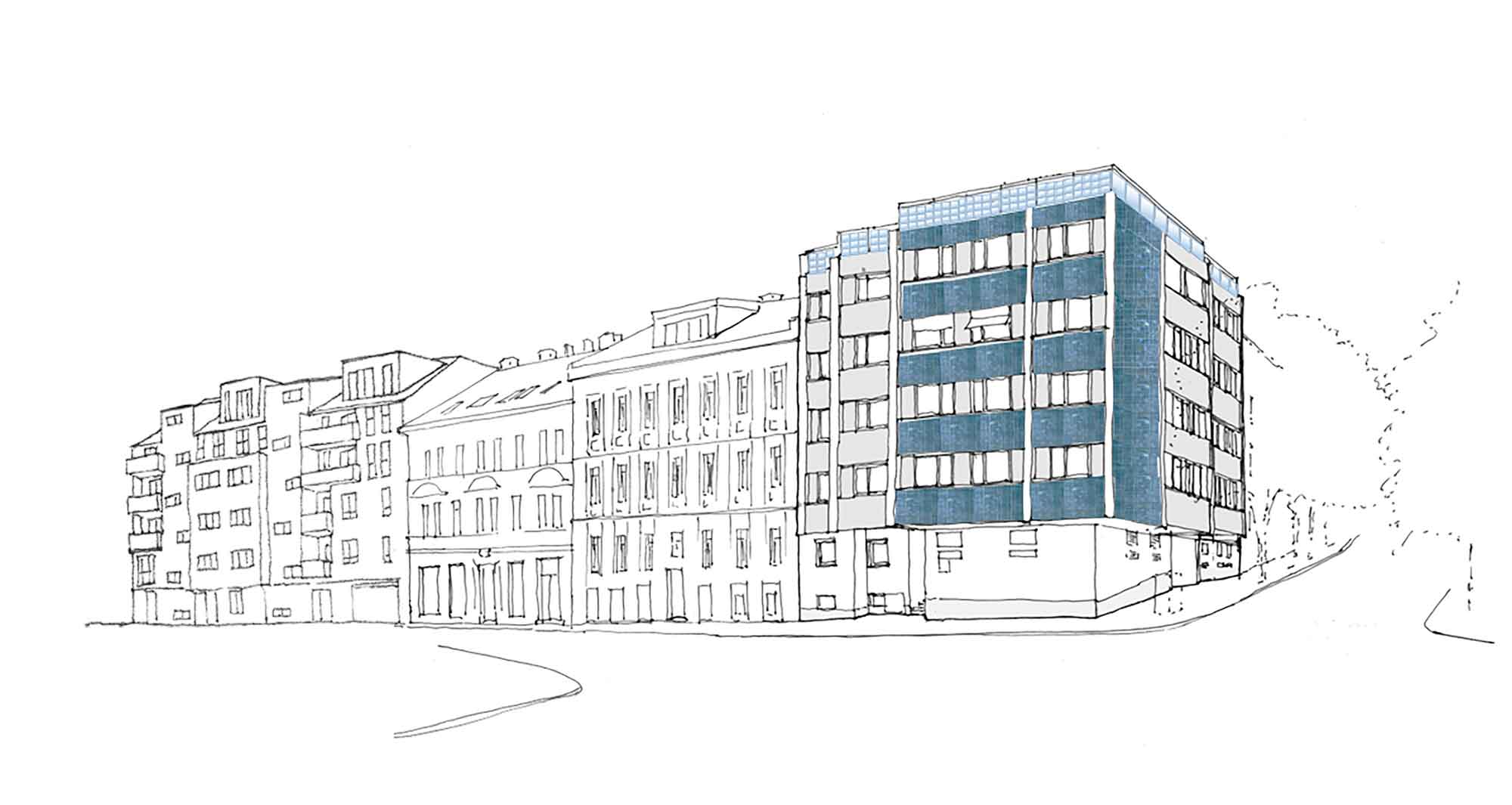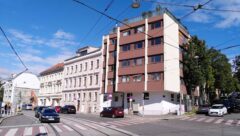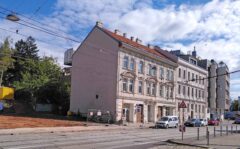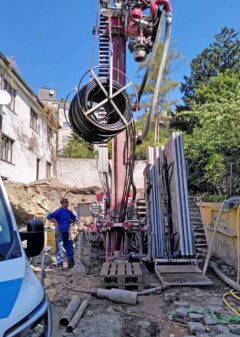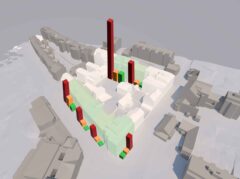In Smart City Baumgarten in Vienna’s 14th district, the residences should in future be supplied with heating, cooling and electricity via an anergy network spanning the various properties and operated with 100 % renewable energy sources. The innovative concept makes it possible for neighbouring households to jointly make use of locally generated renewable energy via a low-temperature micro-network. The demonstration project1 is being developed as a forward-looking alternative for urban areas located outside of the district heating network. “Smart City Baumgarten” features a mix of buildings from various epochs which is typical of Vienna’s outer districts. The heating for the buildings is supplied primarily via distributed natural gas heating systems. A conversion to renewable energy sources poses major challenges in such neighbourhoods. The construction of a new building in an existing gap offers the unique opportunity here to connect a number of different properties and building types with an anergy network to accomplish the switch to 100 % renewable energy sources. A prototype of this new and promising form of energy supply will be realised in an existing urban quarter and will demonstrate a solution that can be adopted elsewhere as well.
The joint planning and implementation of the renovation and energy efficiency improvements of the existing buildings is a central aspect to ensure that the energy requirements are kept as low as possible. The energy will be supplied via geothermal energy in combination with photovoltaics. The cross-building concept makes it possible to fully exploit the potential of the individual properties with respect to geothermal heat and solar power.
Project highlights
> Prototype for an energy community with an anergy network in an existing neighbourhood
> Optimal utilisation of the surface area for PV with installations distributed across the properties
> Customised and innovative thermal insulation and energy efficiency measures for renovation of the various buildings
> Clarification of legal questions concerning the energy community
> Possible connection of other properties in the neighbourhood
Development of the overall concept
The project includes extensive analyses and simulations to identify possible savings from renovation work, the potential geothermal yields and the optimal PV surfaces as well as their yields. Technical solutions are under development for energy storage, and the required storage volumes for heat and electricity are being calculated. The project also encompasses the investigation of legal questions and consideration of financing models. The inclusion of social components and needs (comfort, resident satisfaction, acceptance of planned renovation measures and innovations, etc.) will be ensured by an accompanying process. “Smart City Baumgarten” will become a sustainable, energy-efficient urban quarter that can serve as model for other cities with its solution for local, climate-neutral energy supply in a networked neighbourhood.
What is an anergy network?
An anergy network consists of heat sources (solar panels, waste heat from cooling systems), heat accumulators (geothermal probes) and heat consumers (connected buildings with heat pumps). These system components are connected by a simple pipeline carrying water at a temperature of 4–20 degrees Celsius. The water transports the energy and can be utilised via the heat pump for either heating or cooling.2 Anergy networks could represent a future option for supplying energy to existing urban neighbourhoods.
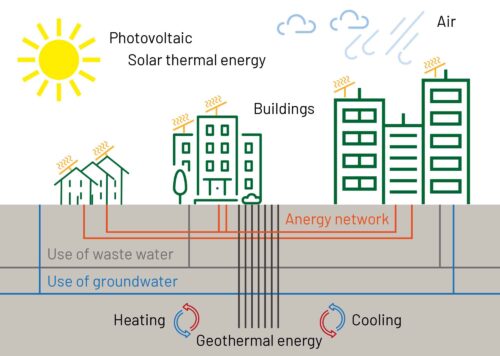
nachhaltigwirtschaften.at/de/sdz/projekte/smart-city-baumgarten.php
1 Project partners: Schöberl & Pöll GmbH (project management), aap.architekten ZT-GmbH, ATB-Becker e.U., LANG consulting, BPS Technisches Büro zur Planung haustechnischer Anlagen GmbH, Welt & Co. e.U., WIEBE Wiener Bauträger- und EntwicklungsgesmbH, WEG Wohnungseigentümer*innen Gemeinschaft Linzer Strasse 280
2 www.oegut.at/de/news/2020/08/pa-anergie-in-oesterreichs-staedten.php
